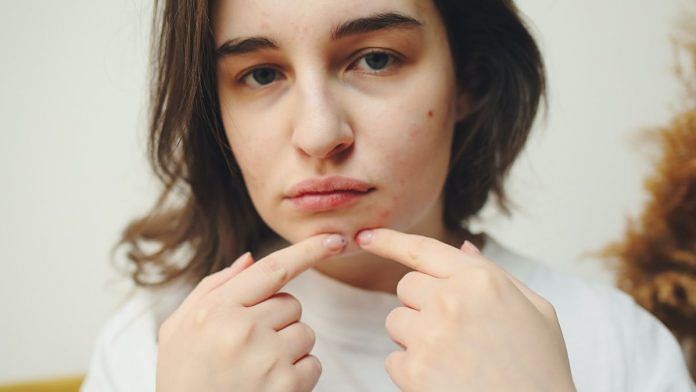Are you someone who loves using Snapchat and Instagram filters for flawless photos, and strive to attain such smooth skin in real life? If yes, then Artificial Intelligence has succeeded in establishing yet another unrealistic physical standard. AI’s remarkable editing capabilities have transformed the way people enhance their appearances in photographs and, in turn, disrupted the beauty industry.
According to Forbes, beauty filters utilise machine learning algorithms and computer vision technology to identify and meticulously map out facial features. Subsequently, these filters superimpose digitally generated layers onto a user’s face with a wide range of adjustments to smooth out the skin, refine facial contours, and resize eyes and lips. Advanced filters can also fine-tune light and colour balances, creating picture-perfect versions of real people.
Indeed, AI-powered beauty innovations offer more personalisation. The Lenskart app, for instance, uses Augmented Reality (AR) to show how a person would look like after wearing a certain pair of glasses. Apps like Myntra and Nykaa also allow users to ‘wear makeup’ virtually to help them select the right foundation and lipstick shades.
However, the problem occurs when these individuals start to fantasise about spotless, glass-like skin or luscious shampoo-ad-like locks. I vividly remember a moment about six years ago when a well-travelled patient approached me with a unique request. As I showed him surgical videos and photographs on my screen, he asked: “Can you show me what I would look like with a full head of hair after the surgery?” Instead, I asked him to share some old photographs so that we could create a similar hairline. It was astonishing to realise that he was talking about apps that would depict him with a full head of hair.
Falsified claims, unattainable goals
Many individuals, particularly young women, bring me photographs enhanced with editing apps like YouCam Perfect, FaceTune, AirBrush, and BeautyPlus. They then proceed to lament the loss of this flawless skin, criticising the pimples, dark spots and pigmentation that now dot it. Such instances are as frustrating as they are common, which is why I always encourage them to take natural photos for accurate representation and treatment plans.
AI has caused women to aspire for the complexion of Aishwarya Rai, the nose and body of Priyanka Chopra, and the cheekbones of Sushmita Sen. Men, on the other hand, often want to achieve a chiselled jawline reminiscent of Brad Pitt or Barack Obama. They forget that the videos and photographs of these celebrities are taken under intense lighting and with professional cameras.
These celebrities do not reveal the hard work that goes behind the scenes to maintain their desirable on-screen persona. Moreover, since their livelihoods depend on their appearance, they devote a significant amount of time to their diets, skincare routines, workouts and various cosmetic treatments. Regular people cannot possibly keep up.
AI use isn’t just limited to patients; even certain doctors’ websites promote misleading advertisements showcasing exaggerated and inaccurate before-and-after photos. Assessing outcomes of cosmetic procedures has been a persistent challenge due to the subjective nature of such treatments. These claims only exacerbate the problem by promoting unrealistic results that make patients needlessly hopeful.
Also read: Don’t go holidaying to a beach if you have psoriasis. There’s a trick to getting enough sun
Why is AI becoming a threat?
As a seasoned dermatologist, I am aware that the use of AI in the beauty industry comes with ethical concerns. AI plays a crucial role in tailoring advertisements according to user preference. For instance, if someone searches for lipstick, they will likely start seeing ads from cosmetic brands. This is evident on platforms like Instagram and Facebook. They categorise users into relevant groups, making advertising more targeted and effective.
However, with this comes the risk of data theft and resale. Some apps can store your facial data, which raises privacy concerns. The storage of such extensive datasets poses a significant risk of breaches that could compromise confidential personal information. Some social media and photo editing applications may also share user data with third-party apps, often without informed consent.
As fascinating as it is, such technology promotes unrealistic standards that can impact people’s self-esteem. It is imperative to consider the potential consequences of such technology, especially for adolescents, who can be highly impressionable. Regularly exposing them to altered images can distort their perception of beauty and self-worth and have lasting psychological repercussions.
Dr Deepali Bhardwaj is a dermatologist, anti-allergy specialist, laser surgeon and internationally trained aesthetician. She tweets @dermatdoc. Views are personal.
(Edited by Zoya Bhatti)



